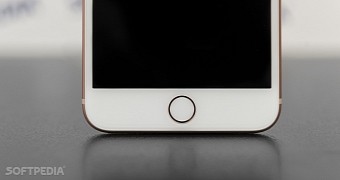The iPhone X launching early next week will come with facial recognition instead of Touch ID, whereas the iPhone 8 and the iPhone 8 Plus boasts a fingerprint sensor, but without Face ID.
Starting with the next-year generation, Apple will add a little bit more consistency across its lineup and offer facial recognition on all iPhone models, according to well-known Apple analyst Ming-Chi Kuo from KGI Securities.
This means the company will give up on fingerprint sensors on the iPhone completely, and this year’s model is the last one to feature Touch ID.
The analyst says that using facial recognition with 3D sensing on all models will help Apple maintain its advantage over its rivals, which are still struggling to develop similar technology. Kuo believes that all iPhone versions could thus make the transition to an all-screen design, giving up on bezels and incorporating only facial recognition to secure devices and authorize downloads and payments.
Android makers going for fingerprint sensors
On the other hand, he thinks that Android manufacturers would continue to invest in devices with fingerprint sensors, but starting with 2018, their models would begin shipping with readers embedded into the screen. Samsung is also believed to be working on such tech for the Galaxy Note 9 due in the summer of 2018.
Apple itself has considered fingerprint sensors embedded into the screen for the 2017 iPhone lineup, but due to production issues, the company eventually gave up on this idea and embraced facial recognition.
Kuo says that despite Android makers focusing on fingerprint sensors placed under the screen, this solution won’t be as successful as Apple’s, especially because of high selling prices. Sooner or later, they will all transition to 3D sensing solutions similar to the one on the iPhone X, he believes.
At this point, however, the 3D sensing cameras on the iPhone X are said to be giving Apple huge headaches, as manufacturers struggle to deal with the production process, still having to cope with a very low yield rate. The iPhone X is projected to go live in November, but more and more people claim that either Apple will announce a delay to December or the device will go on sale in limited numbers.

 14 DAY TRIAL //
14 DAY TRIAL //